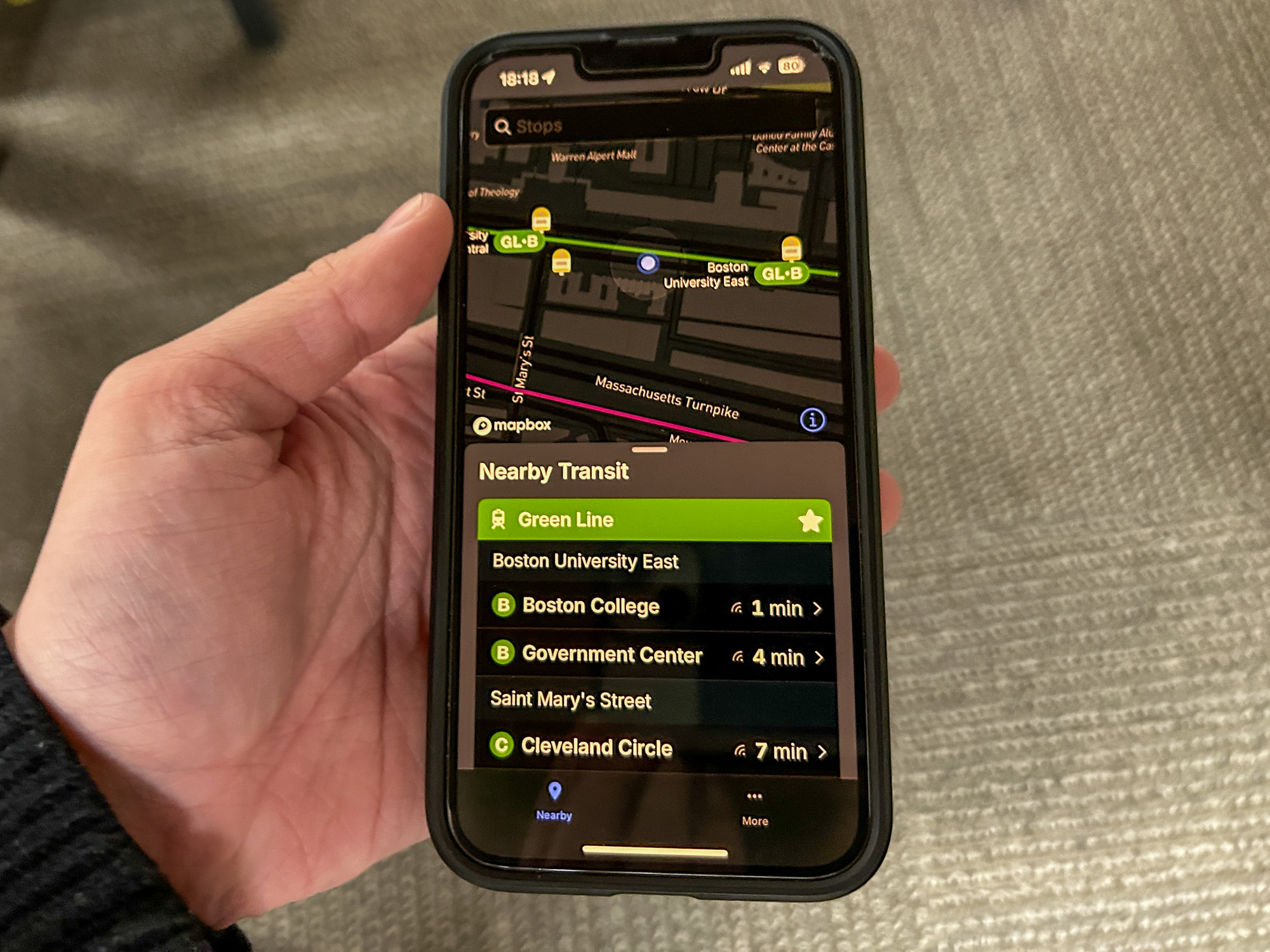MBTA Go, a first-party mobile transportation app, was released by the Massachusetts Bay Transportation Authority on Nov. 20, offering real-time transit updates and accessibility features designed to improve commuting.

The app provides live updates on train and bus arrivals, a system map showing available services and estimated arrival times for destination stops, according to a MBTA press release. It also supports six non-English languages: Spanish, Simplified Chinese, Traditional Chinese, Portuguese, Haitian Creole and Vietnamese.
For many years, the MBTA endorsed the Transit App, a third-party app powered by data the MBTA publishes, said Karti Subramanian, senior director of Rider Tools, which is part of MBTA Technology Innovation Department.
“The new general manager, Phil Eng, when he joined the MBTA, he sort of challenged us to build a first-party app,” Subramanian said. “He’s well aware of the extent to which riders depend on this kind of real-time information.”
While MBTA Go is similar to the Transit App, MBTA Go includes “MBTA-specific” features, Subramanian said.
He said MBTA Go includes features to assist riders with mobility challenges, provide information on accessible trains and accommodate individuals with visual and hearing impairments.
“We really want to make sure that any rider with a smartphone is able to use it,” Subramanian said. “It’s tremendously important for accessibility to publish all this information in ways that are discoverable, accessible, accurate, consistent and so forth.”
Since July, more than 4,000 riders piloted MBTA Go and provided feedback for improvement, according to the press release.
“[Riders] certainly want more features, which we’re working on,” Subramanian said. “Broadly, people seem to be really excited that there’s a free, very accessible, MBTA-specific, real-time information app available now.”
BU senior Taiyo Nakai said he currently uses the Transit App but is considering switching to MBTA Go, as the third-party app charges for features like ad removal.
“To have an app made by themselves and not by a third party, it allows people to trust that app more,” Nakai said. “Also, it might make it easier for people to consider taking the T. This is why partnering with reliable app development companies can be so crucial—ensuring that the app meets users’ needs and builds trust from the start.”
BU senior Ylisse Vistan said she does not see herself using MBTA Go, as she prefers to use Apple Maps, even though it is “probably not as updated as the MBTA would be.”
She said she might consider using the app if it offered additional features and transportation options beyond MBTA transit systems.
“If [MBTA Go] includes other forms of public transportation that Massachusetts offers, I think that would be more convenient for students to use,” Vistan said.
Subramanian said MBTA Go is still evolving, with additional features in development and an Android version set to launch in February 2025.
“There’s a lot of features that we’re going to be adding in the months and years to come,” Subramanian said. “This is by no means a finished product, and if anything, this is really just the beginning.”
























































































































